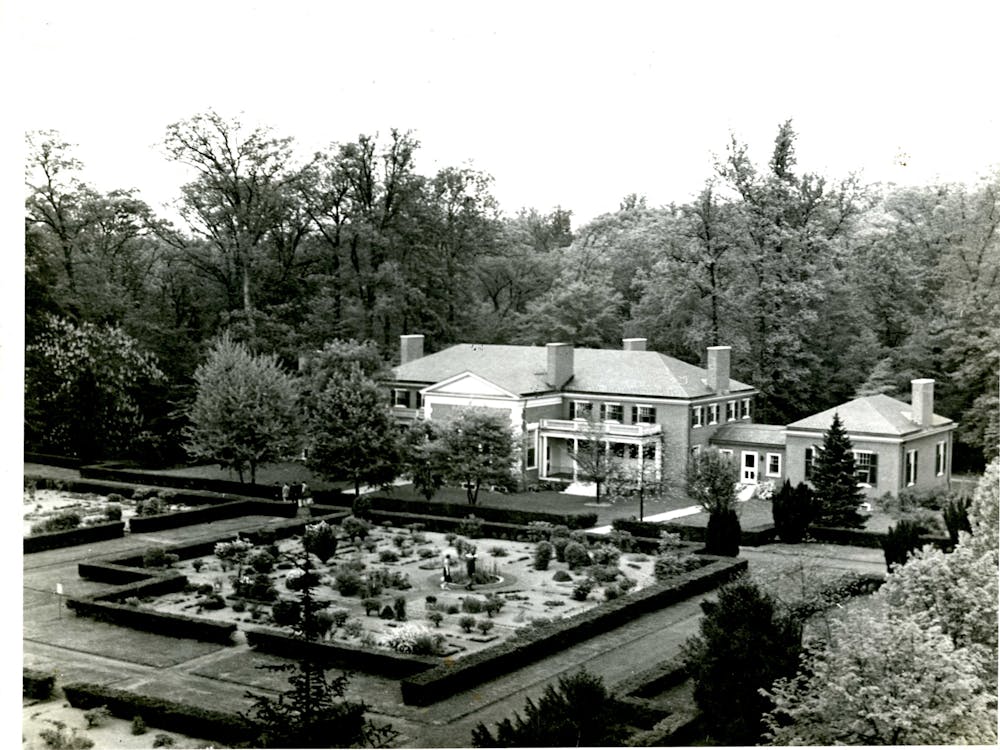LGBTQ Life at JHU hosted a workshop on Wednesday night in Hackerman Hall in conjunction with Hollaback! Baltimore, an organization dedicated to combatting the daily issue of street harassment against women and members of the LGBTQ community.
The event was held as part of Women’s History Month as well as part of the LGBTQ+ event series.
Hollaback! Baltimore, co-directed by Leah Michaels and Brittany Oliver, was started in 2005 as a blog site to discuss street harassment and was accelerated by the story of a woman who took a picture of a man who was masturbating on the subway in front of her and shared it online. Stories can be submitted anonymously on the website, which is allowed, in order to create a safe online space to share stories of sexual harassment.
The main mottos of the campaign are “I don’t accept street harassment, I holla back” and “Leveraging technology to end gender-based violence in public spaces.”
The discussion was prefaced by videos of women relating their experiences with street harassment and catcalling and sharing their desire to be able to wear whatever clothing they wish. It included the testimony of a former Miss Washington, D.C. who related her story of sexual assault on the D.C. Metro.
Women experience street harassment including vulgar name-calling, inappropriate touching, exposure by men and stalking every day as they walk to work or their homes. According to Stop Street Harassment, 99 percent of women reported that they had experienced street harassment. People can begin suffering from harassment and the effects of rape culture as early as middle or junior high school, according to the campaign.
“Men are more likely to harass, and women are more likely to be targets, but women can harass, especially trans folks, gays and lesbians,” Oliver said.
What the speakers referred to as the “death spiral” of cultural street harassment leads to bullying, workplace violence, domestic violence, violent crime and rape worldwide. Gay and transgender people are more likely to have been sexually harassed and assaulted.
Men often see street harassment as a minor issue and perceive some unwanted comments toward women as being flattering, even if they don’t appreciate or want it.
“It depends on how it makes you feel. If it’s unwanted, then it’s street harassment,” Oliver said. “It’s important to advocate ways that you can help and we can fight against this.”
The program advised attendees on how to respond to harassers, including using strong body language, projecting confidence, making it clear that harassment is never wanted and never apologizing or losing one’s temper.
During the discussion some students reported feeling uncomfortable or violated by vocal harassment from male Hopkins security guards.
“Respond any way you feel comfortable. There’s no one right way to respond to street harassment,” Oliver said.
Bystander intervention was stressed as an effective way to help fight harassment. Other ways to fight street harassment are to protest and spread the word with friends, colleagues and online.
Hollaback! Baltimore’s Safer Spaces Campaign creates safe places in public places and businesses, such as Sugar and Red Emma’s, where women and LGBTQ community members can go without feeling threatened or harassed.
“If a bar wants to have female patrons, they ought to make it more female friendly. The bar staff rarely intervenes,” Oliver said.
A member of the audience asked Michaels what the first step to ending street harassment would be.
“I think the first step is to get people to realize that it is a real societal issue and that it is connected to violence against women and violence against the LGBTQ community,” Michaels said.
Michaels was also asked what she would say to a young girl who has experienced street harassment for the first time.
“I would first tell her that nothing that happens to her is ever her fault. Sharing your story is always incredibly important. Second, I would tell her to do anything she needs to do to help herself, whether that’s writing her story down online or in a diary. Third, I would tell her to learn something about verbal and physical self-defense,” Michaels said.
Sophomore Lucy Delgado, who attended the event, also learned that people who are not directly being harassed can help reduce instances of harassment.
“I learned that you could also help someone just by being a bystander, and it’s really important because even if it hasn’t happened to you, then you can still help someone,” Delgado said.






















Please note All comments are eligible for publication in The News-Letter.